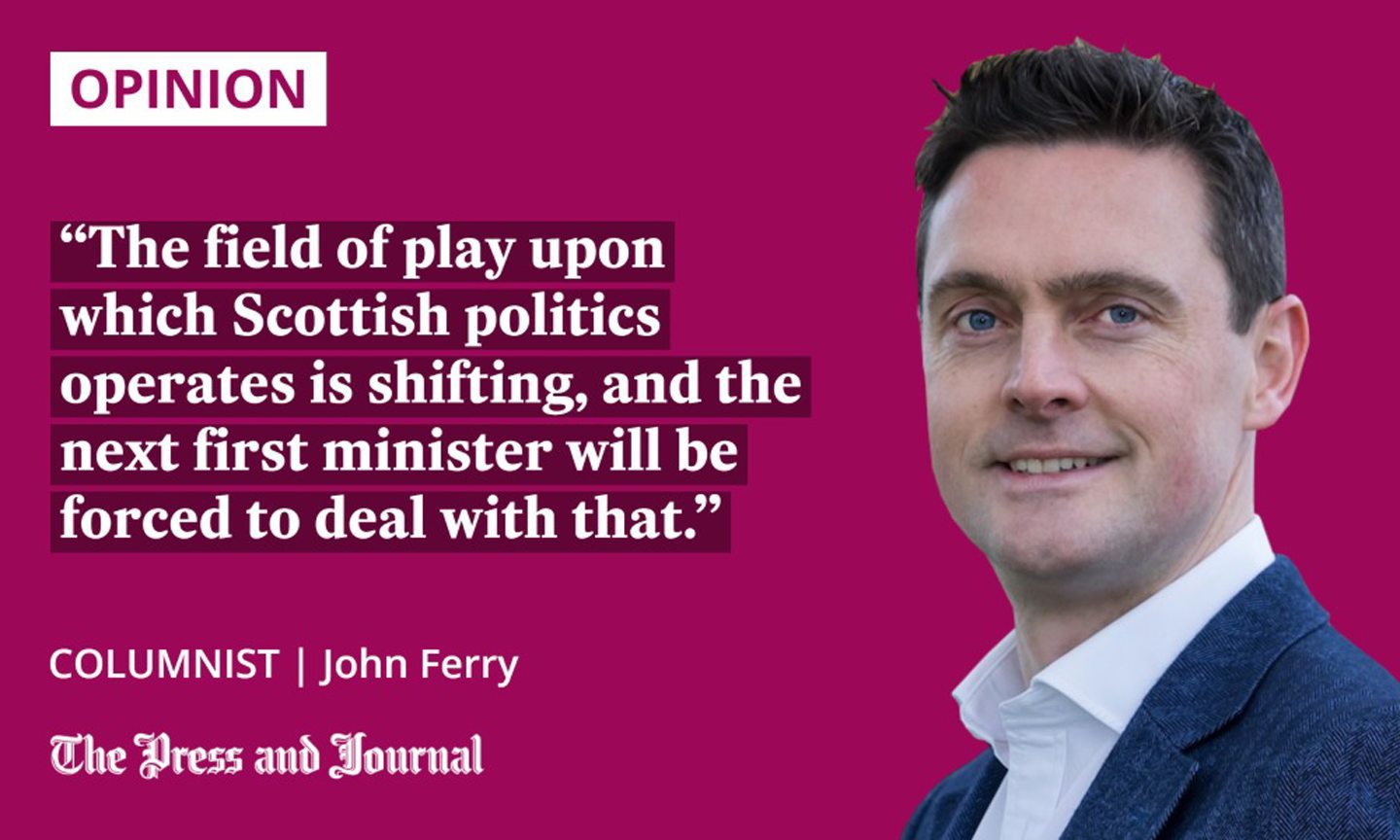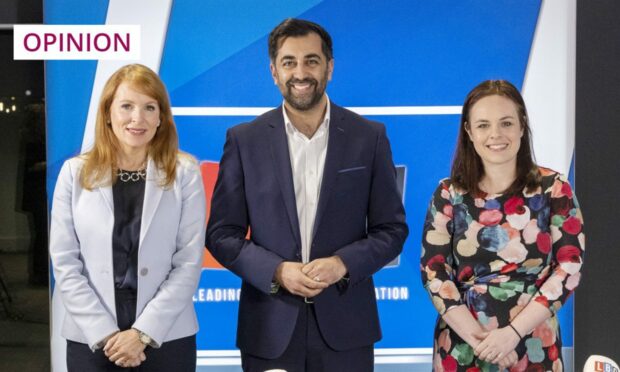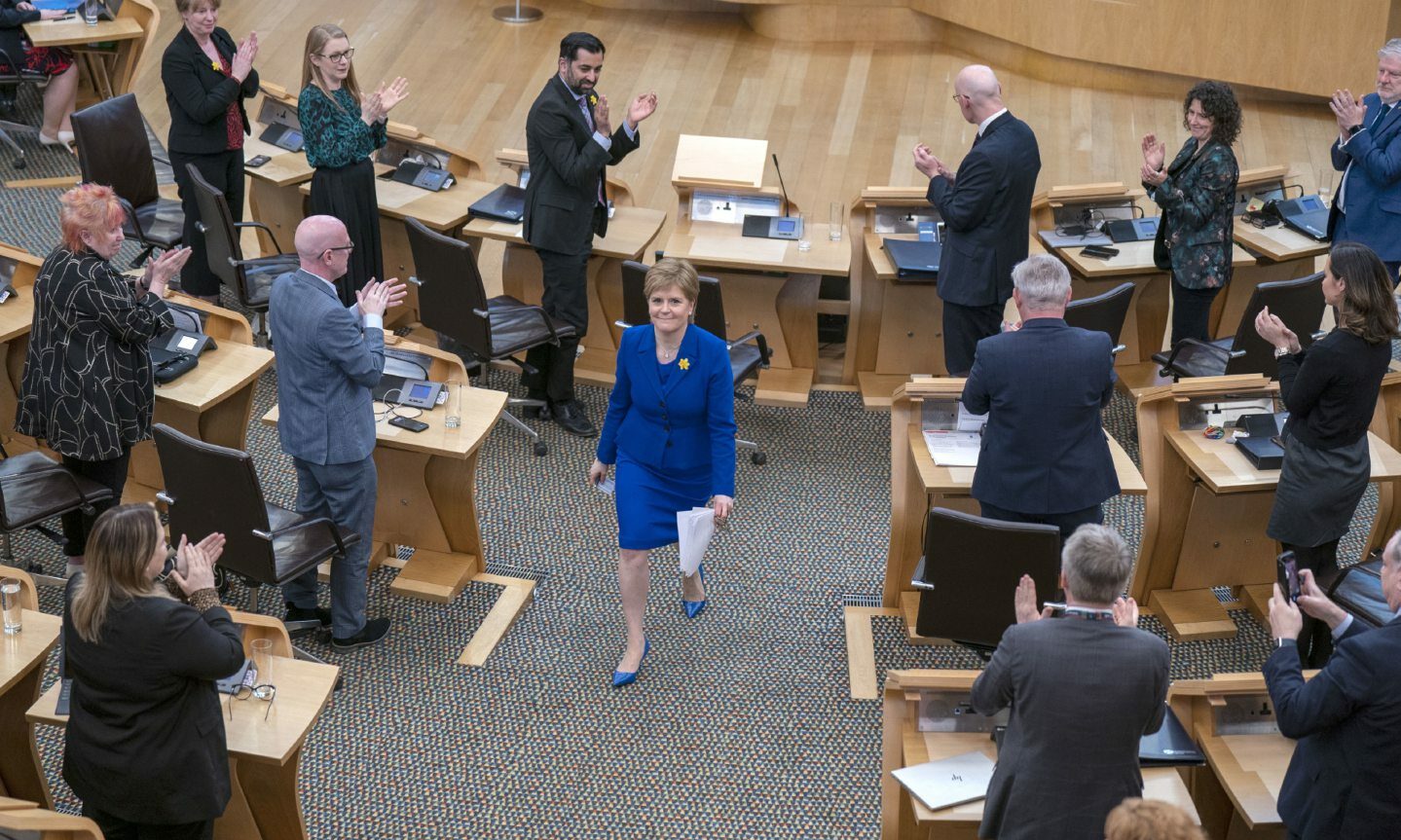By the end of today, we should know who has won the contest to become Scotland’s next first minister.
The swearing-in ceremony will then take place on Wednesday at the Court of Session in Edinburgh, with the appointment of ministers and junior ministers expected on Thursday.
It brings to a close a tumultuous election process for Scotland’s current party of government. It also creates a potential turning point for the country.
Will we continue to see public services neglected, as the Scottish Government spends its time engineering fights with Westminster while stirring up a poisonous national identity culture war that pits friend against friend, or will we get something new: a first minister willing to put Scotland’s interest, instead of the Nationalist interest, first?
Nicola Sturgeon failed to shift the dial on independence. Despite Brexit, Boris Johnson and Tory chaos with Liz Truss, the majority of Scots still stubbornly insist there is more that unites than divides us on this island. The politics of grievance, the politics of identity and of the flag, has failed to deliver for Scotland.

Let’s summarise the evidence for this record of failure. On education, the story is one of consistent decline since 2014/15, and a failure to close the poverty-related attainment gap. In 2021, Audit Scotland warned: “Progress on closing the gap has been limited and falls short of the Scottish Government’s aims.”
The latest school leaver attainment statistics show that, over the last seven years, the poverty-related attainment gap for school leavers with one pass or more at SCQF Level 5 (Nat5) has shrunk by less than 2% and still stands at almost 20%.
On health, the latest Public Health Scotland figures show that the number of people on hospital waiting lists is equivalent to an incredible one in nine of the Scottish population. Almost 625,000 Scots are on hospital waiting lists.
On the day Nicola Sturgeon made her final appearance at First Minister’s Questions, a Holyrood committee released a report on the ferries fiasco that has so badly failed Scotland’s islanders.
As well as being critical of Sturgeon for prematurely naming Ferguson Marine as the preferred bidder to build the ferries, likely weakening the subsequent negotiating position of government ferry company CMAL, the committee said there had been a lack of information, delays, incomplete answers and failure to answer from ministers and Transport Scotland during its inquiry. The “lifeline” ferries are now five years late and hundreds of millions of pounds over budget.
The field of play has shifted
Imagine a new SNP leader and first minister adopting the radical position of parking the push for independence to focus instead on fixing these and other challenges Scotland faces.
It seems certain that one of either Kate Forbes or Humza Yousaf will win the contest. Yousaf has been described as the “continuity candidate”, while Forbes has pitched herself as the candidate for change. This suggests the former will continue to beat the populist drum, while the latter offers at least the possibility of pragmatism.
The pendulum is swinging away from populists offering simplistic answers to complex questions
A changed approach seems inevitable, however, regardless of who wins. The field of play upon which Scottish politics operates is shifting, and the next first minister will be forced to deal with that.
Last month, The Economist magazine published an article suggesting Nicola Sturgeon’s resignation is part of a bigger trend it referred to as “Britain’s great moderation”. The extreme left and the extreme right of the Labour and Conservative Parties have been, or are being, neutralised by their party’s current leaders.
Sturgeon’s failure to win over people’s support for another referendum or for secession, combined with her falling popularity ratings and ultimate demise, is another sign that the pendulum is swinging away from populists offering simplistic answers to complex questions.
SNP’s attempt to split Scotland into identity tribes has failed
If Yousaf becomes first minister, he will no doubt try to deploy the same populist tactics as his predecessor, but he might well find an increasingly narrow pool of people who are receptive to this pitch. If Forbes becomes first minister, we will have a social and economic conservative at the head of the Scottish Government which, in itself, renders defunct much of the SNP’S populist framing.
There are, therefore, two key positive outcomes from this change in leadership. The first is the possibility of a new first minister forced to focus on the day job, for once. The second is an affirmation of the enduring ability of established democracies to weather waves of populism.
The fractures this leadership contest has produced in the SNP might appear random, but they are not. Democracies make such fractures in populist parties inevitable.
The SNP’s attempt to split us into identity tribes has failed. Time for a new, post-populist era.
John Ferry is a regular commentator on Scottish politics and economics, a contributor to think tank These Islands, and finance spokesperson for the Scottish Liberal Democrats



Conversation